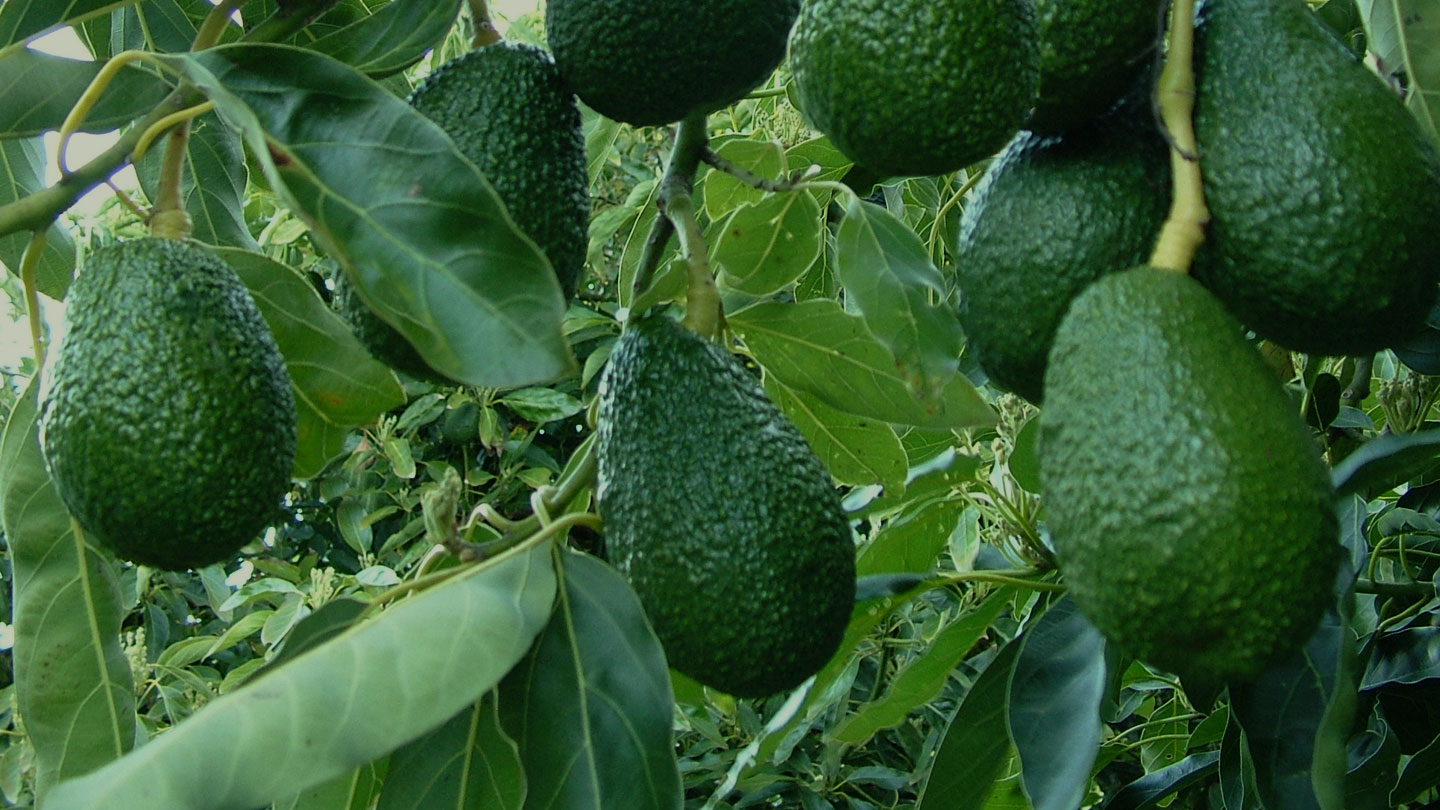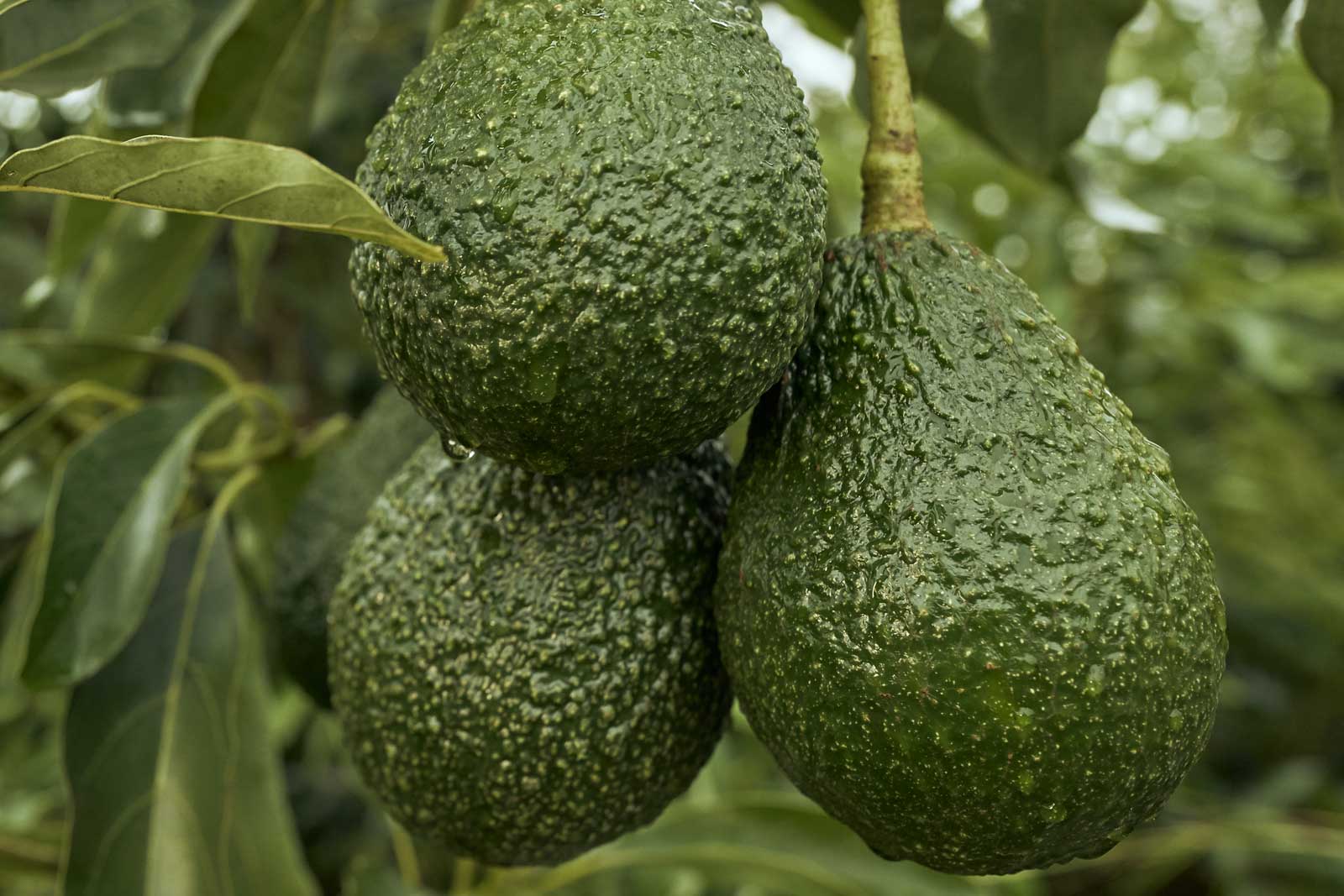How to improve avocado yields?
Excellent results on avos
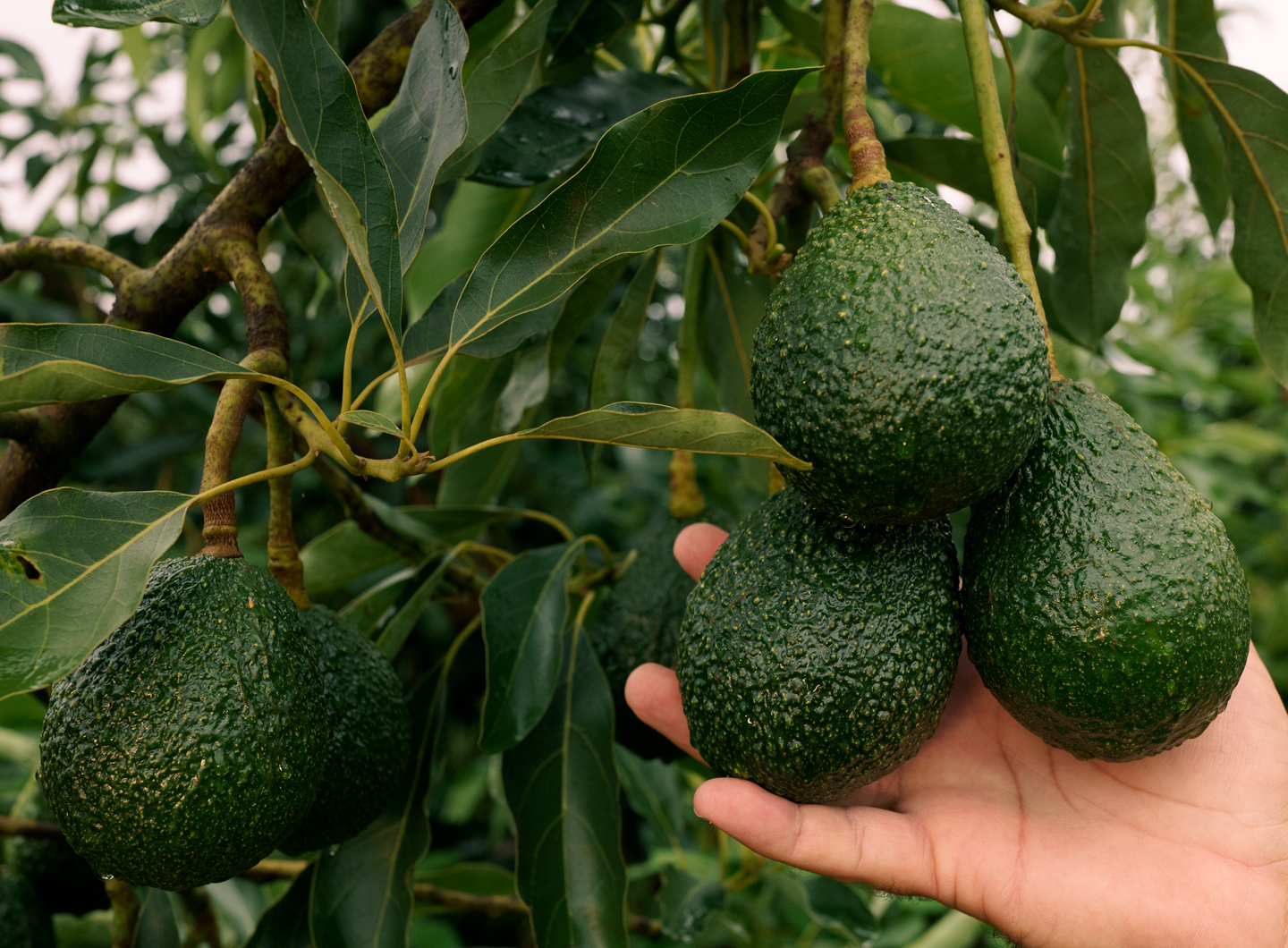
South Africa’s subtropical belt produces some of the most dynamic, quality-driven avocados in the world, but it is also exposed to heat spikes, dry spells, salinity pressure in irrigation water, and the perennial challenge of converting flowers into packable fruit. In this context, growers have steadily adopted Kelpak® Liquid Seaweed Biostimulant as a management tool to support tree performance and improve marketable yield, while staying within label-based, field-proven practice.
Across multiple trials, Kelpak® has been shown to help trees cope with abiotic stress and to lift total marketable yield, without compromising fruit size or weight. These outcomes are particularly relevant in alternate-bearing cultivars and in hotter, drier production zones. Published summaries highlight improvements in growth of young trees, fruit set and retention, and harvest numbers, with the net effect being more fruit reaching pack-out standards. For growers, the most telling metric is delivered yield. In South African and international datasets, Kelpak programmes have produced notable gains:
- In a yearbook summary of commercial and independent trials, two foliar applications at 0.4% delivered a 24% yield increase (from 10.34 t/ha to 12.83 t/ha), alongside a 34.7% value increase (about $6 084/ha in that trial set)
- In broader avocado brochures and case studies, improved pack-out due to larger fruit translated into an average income increase of 57% where blocks received two foliar sprays at 4 L/ha
While absolute figures will vary by cultivar, season and management, the direction of travel is consistent with more marketable cartons per hectare and fewer borderline fruit. Kelpak’s strength is in simple, targeted timing at key physiological moments. This practical programme is used in trials and aligned to grower practices:
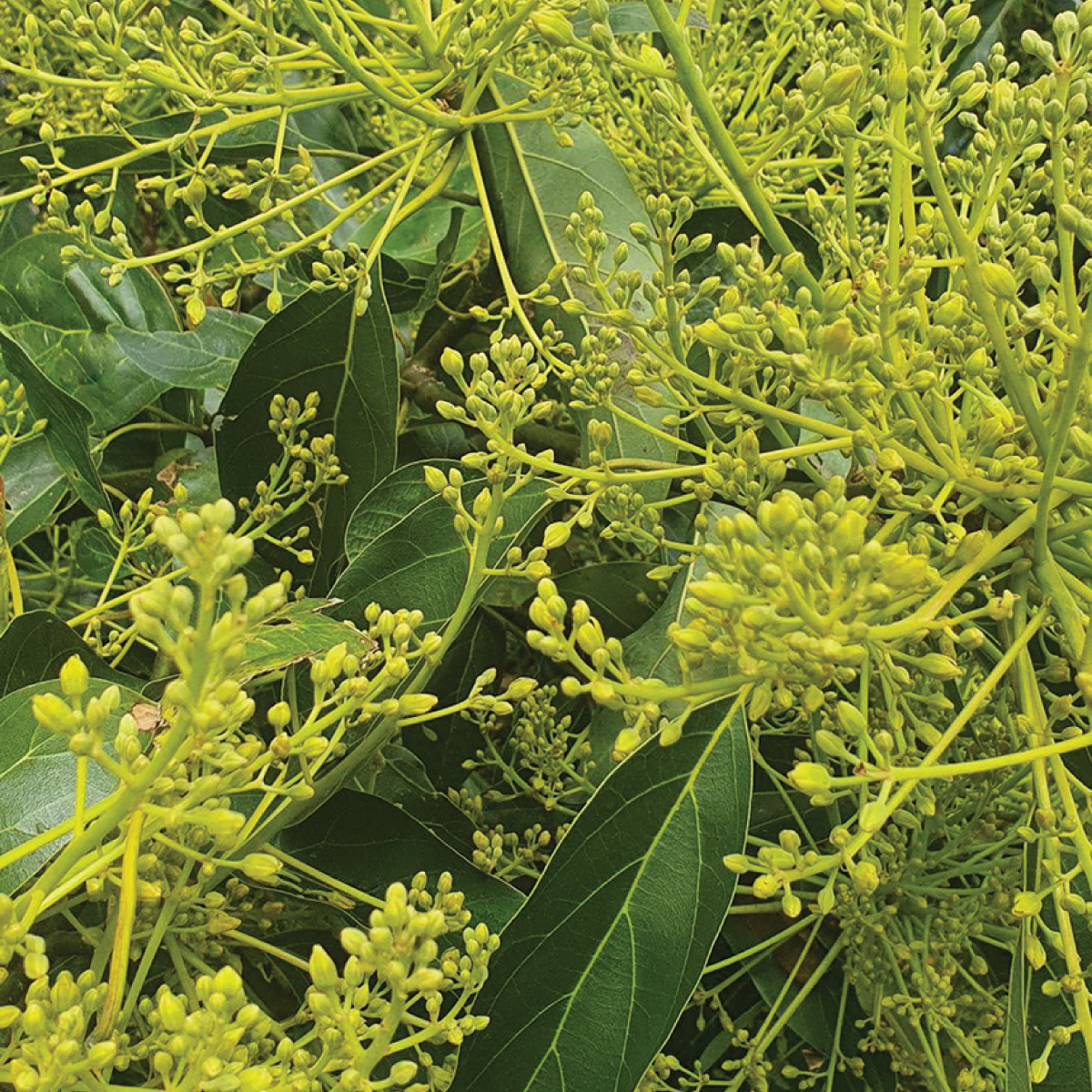
AT 50% FLOWER
Apply a foliar spray at a 0.4% dilution at a minimum rate of 3 L/ha.
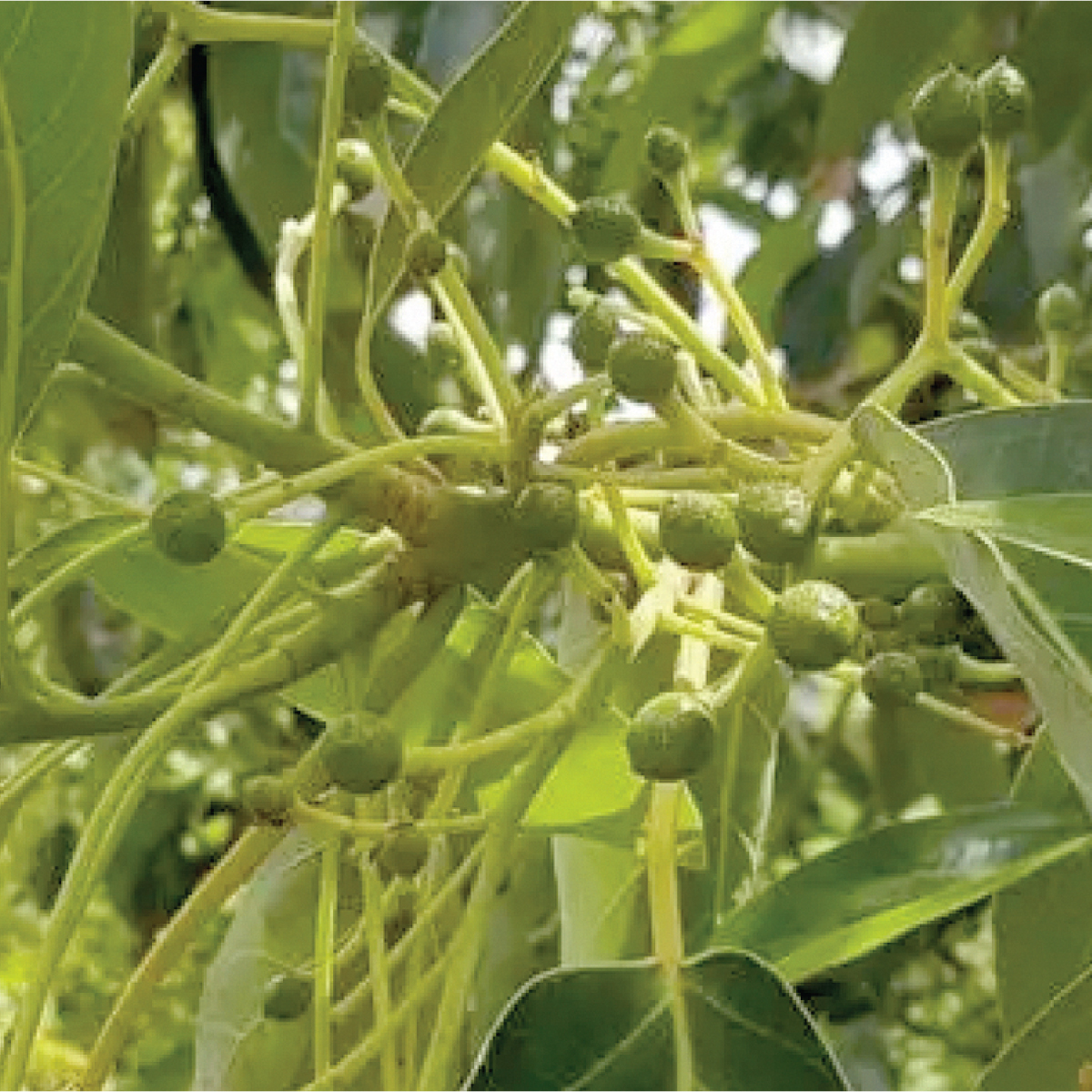
14-21 DAYS LATER (FRUIT-SET)
Repeat the foliar spray at 0.4% dilution at a minimum rate of 3 L/ha.
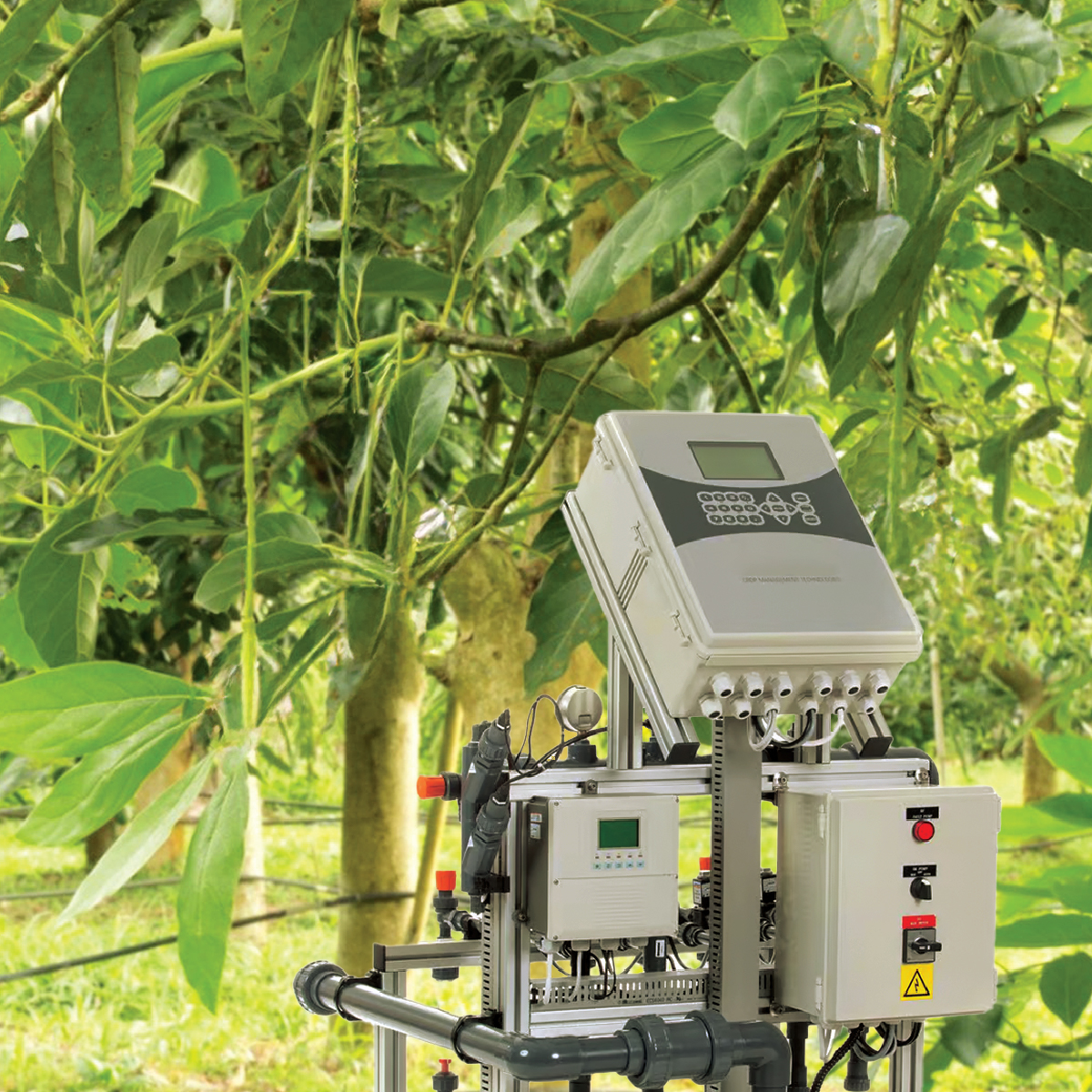
OPTIONAL FERTIGATION
Apply 15 L/ha with the first root flush. With high salinity apply a 30 L/ha pulse at 1st & 2nd root flush. Maintain pH <7 and rinse lines.
These timings align with the orchard’s highest hormonal and carbohydrate demand, supporting fruit set/retention and stabilising the on-tree crop for better alternation control. For foliar applications at spray volumes above 1 000 L/ha, maintain a minimum dilution of 0.4%, and follow standard tank-mix compatibility guidelines.
Subtropical blocks often grapple with variable water quality or heat events that compromise set and summer sizing. Trial summaries point to increased tolerance to abiotic stress (including heat and drought), and improved performance even where irrigation water salinity is elevated, conditions under which the fertigation option becomes especially relevant.
Your implementation checklist for the 2025/26 season:
- Baseline first: Pull your last two seasons’ block-level yield and class breakdowns to benchmark pack-out volumes.
- Pilot: pply the two-spray 0.4% programme (with optional fertigation pulse) on representative Hass or Maluma blocks
- Record: Keep a matched control.
- Watch set and drop: Record fruit set counts and early drop after both sprays to capture where the differences start.
- Track stress windows: Log heat spikes or irrigation EC fluctuations.
- Test salinity: If salinity is consistently high, consider the 30 L/ha fertigation pulses at the first and second root flush.
- Measure at pack-out: Compare fruit per 4 kg box and class distribution...
- Lookout for the expected reduction in fruit per carton and the shift to higher pack-out!
Panquehue, Chile +
Levubu, South Africa
The bottom line for subtropical fruits?
In a market that rewards reliability and quality, tools that stabilise fruit set and convert flowers to cartons are invaluable. The collective evidence shows that Kelpak can contribute to that outcome in avocados by supporting stress tolerance and increasing the fruit that make it into marketable classes, translating into improved t/ha and stronger returns per hectare.
Subtropical blocks often grapple with variable water quality or heat events that compromise set and summer sizing. Trial summaries point to increased tolerance to abiotic stress (including heat and drought), and improved performance even where irrigation water salinity is elevated, conditions under which the fertigation option becomes especially relevant.
*Linda Greyling is Head of Technical Support at Kelpak *Nico Engelbrecht is the Regional Head of Sub-Sahara Africa at Kelpak
Avocado support
For more information on how Kelpak can improve avocado yields or for nearest dealer info, please contact one of the phone numbers or email addresses below:
KELP PRODUCTS INTERNATIONAL
Head Office - South Africa
Tel: +27 21 786 2090
Fax: +27 21 786 3274
Email: info@kelpak.com
TECHNICAL SUPPORT
Contact: Linda Greyling
Email: linda.greyling@kelpak.com
or
Nico Engelbrecht
Email: nico.engelbrecht@kelpak.com
To process your enquiry efficiently please complete all fields:
